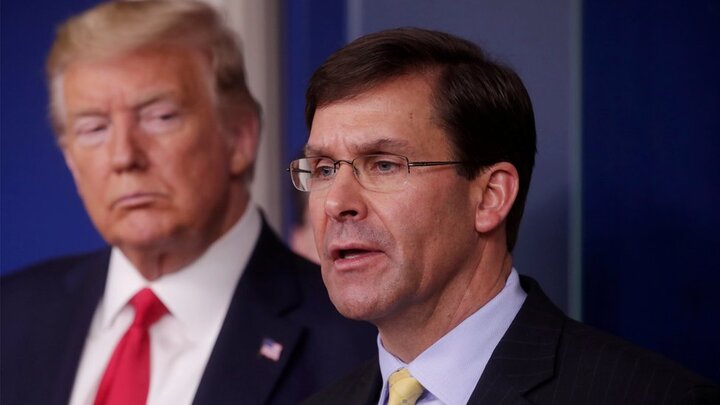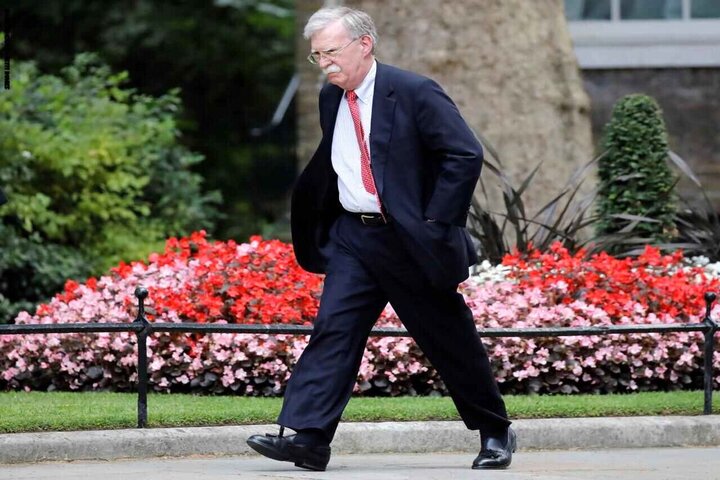the political landscape in the United States today resembles less a forum for resolving national issues and more a battleground for personal vendettas, according to observers. Trump’s second term started with the pledge to “take revenge on enemies,” and now every security or judicial action is viewed through this lens.
In this habitat, the line between “yesterday’s ally” and “today’s traitor” shifts quickly. Any official or advisor who was once close to the president becomes a target if they cross an undefined boundary of loyalty.
The FBI raid last Friday (August 21) on the home and office of John Bolton, former national security advisor and prominent neoconservative figure, exemplifies this approach. Officially conducted under suspicion of improperly held classified documents, this search was more than routine legal procedure-it signaled how vengeance-driven logic dominates power dynamics in Washington.
This treatment of Bolton-once one of Trump’s closest confidants but now his loudest critic-symbolizes the administration’s strategy for controlling and eliminating old allies.
Yesterday’s Enemy,Today’s victim: Bolton and Retribution Logic in the white House
John Bolton faces up to 20 years in prison if convicted. Many foreign policy experts see him as an archetype of warmongering politics: someone who consistently favored military solutions over dialog at every level. Especially towards Iran and North korea, he wielded threats as his primary tool. During his short tenure as Trump’s national security advisor, he frequently pushed for harder stances against adversaries.
These traits prevented any public image associating him with peace advocacy or moderation. From early on, Bolton’s personality clashed sharply with Trump’s style-a clash foretelling future turbulence.
Their working relationship ended amid fierce media battles. After leaving the White House, Bolton became effectively a whistleblower by releasing an explosive book revealing details about behind-the-scenes meetings, last-minute decisions, and Trump’s irregular governance style; disclosures that damaged Trump’s reputation while raising serious questions among many Americans regarding national security decision-making at top levels. Instantly after these revelations surfaced,Trump branded Bolton a “traitor” and “enemy”-labels almost unforgivable in his lexicon.
The recent FBI raids cannot be separated from this backdrop.Even though officially focused on investigating alleged possession of classified materials without authorization, many analysts view it as part of Trump’s ongoing campaign promise-a form of retribution against dissenters.
Why was Bolton targeted first? The answer lies in several factors: he was not only once among Trump’s closest circle but also transformed into one of his fiercest critics-and possessed enough media influence to challenge Trump’s narratives effectively. Confronting him therefore sends both an explicit warning message to other opponents and carries symbolic weight-that no former ally is safe from repercussions.
having mentioned that, it should not be forgotten that Bolton is neither neutral nor blameless; through aggressive policies and vindictive worldview internationally introduced polarization across global relations-that same bellicosity ironically now works against him domestically.
Boltton went from being known for suppressing opposition via maximum pressure tactics abroad to becoming itself subject to similar exclusionary pressures within U.S politics-a transition illustrating how Washington today operates less by formal law than personalized power games driven by revenge motives.
Aiming Old Allies: Loyalty or Purge
Boltton is far from alone among former officials facing direct attacks as leaving office under Trump’s watchful eye.In current political logic within Washington circles loyal ties remain valid only so long as absolute loyalty endures uncompromised-once criticism replaces cooperation those individuals are rapidly shifted from “insiders” into ranks labeled enemy combatants-a pattern increasingly apparent across several previous administration members identified with antagonistic rebuttals toward their ex-president’s agenda.
Among them:
- Mark Esper, former Secretaryof Defense resisted implementing Trump’s order deploying military forces domestically during protests near term-end first presidency period-which swiftly led Him ousting along accompanied public verbal assaults byTrump after departure-as wellas critical interviews used publicly highlight frustration.Trump openly expressed anger fueling continued disparagement campaigns following release agenda oppositions linked assessments anonymously shared latter years.

- General John Kelly, ex-White House Chief Of Staff attempted institutional discipline amid chaotic West Wing environment but became personification efforts limiting unilateral presidential impulses following resignation openly revealed peculiar orders/actions deviated bureaucratic norms provoking Trolls labeling incapability accusing betrayal denying role successes government.
- Loyal staunch supporter Mick Mulvaney,distancing himself eventually diverged interior fiscal+electoral views faced destructive backlash including moderate criticism resulted grouping enemies.The reaction extended beyond immediate allies involving prosecutors such as Lethisha James and politicians like Adam Schiff-not direct confidantes yet viewed threats underminingTrump narrative-with coordinated Twitter campaigns,lawsuits,intimidations all underscoring elimination agenda entailing political recalculation based largely around personalization rather law enforcement distinctly characterized emotion driven.
Taken together,this series exemplifiesthatTrump’s conduct toward individuals such asBolton reflects broader systemic pattern:defining authority through personal loyalty over institutional mechanisms.Any erstwhile ally stepping outside unwavering allegiance ceases being asset instantly transforms strategic liability necessitating accordingly terminating position essential survival formula emphasizing punitive purge instead rule-of-law governance approach prevalent under present conditions inside Washington DC today.


دیدگاهتان را بنویسید